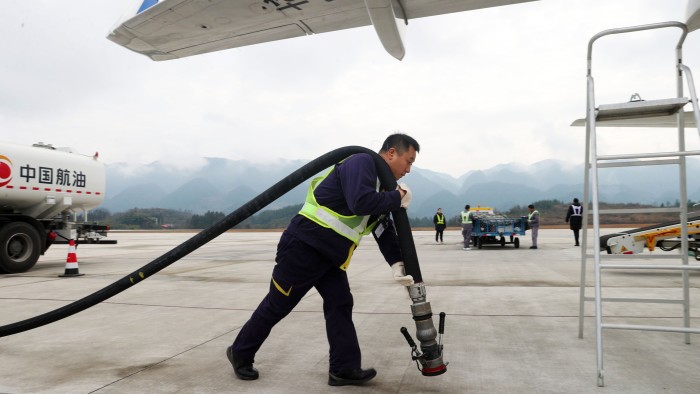Stay informed with free updates
Simply sign up to the Oil & Gas industry myFT Digest — delivered directly to your inbox.
The war between Iran and Israel has driven European diesel and jet fuel prices to their highest levels in 15 months, as traders fret about potential disruptions to exports from the Middle East.
Since hostilities flared last Friday, the premium for diesel over crude oil has surged by 60 per cent, while jet fuel has risen by 45 per cent, according to market pricing data from Argus.
The rally reflects worries that any interruption to shipments from the Gulf, a key source of the fuels for Europe, could severely tighten supply ahead of the peak summer travel season.

Although Brent crude, the international benchmark, has gained around 9 per cent to just under $77 a barrel in the same period, analysts said the global oil market remains well supplied and Israel has so far steered clear of targeting Iran’s oil export infrastructure.
The sharper rise in refined fuel prices highlights Europe’s reliance on Middle Eastern imports. “It is one of the most dramatic week-on-week jumps,” said George Maher-Bonnett of price reporting agency Argus. “Suddenly these margins have erupted.”
He warned that any problems in the Strait of Hormuz, the key chokepoint for oil, gas and refined fuel exports from the Gulf, would particularly affect Europe’s diesel supply.
Last year, over a fifth of imported road diesel into the EU, UK and Norway came from the Gulf, particularly Saudi Arabia, Kuwait and the United Arab Emirates.
The Gulf was also responsible for over half of Europe’s imported jet fuel, roughly 13mn tons, according to figures from data company Kpler. Other countries selling the two fuels into Europe include the US, India and Turkey.
The UK is especially exposed, having imported around a third of its diesel and two-thirds of its jet fuel last year.
On Thursday, jet fuel was trading at a near $27 a barrel premium to Brent crude, and diesel cost nearly $29 a barrel more than Brent. Maher-Bonnett said it would take a few weeks for the high prices to be felt by consumers and airlines because many companies have hedging strategies in place.
By contrast, the margins for gasoline in Europe have weakened due to tepid demand both domestically and in key export markets such as the US, Canada and Nigeria.
The opening of the Dangote refinery in Nigeria, which used to be the second-largest market for European gasoline exports, has had a significant impact. “We have seen export levels [to Nigeria] cut in half,” said Maher-Bonnett.
https://www.ft.com/content/430b02c1-bd86-42fd-846c-d1e5edbd445a


